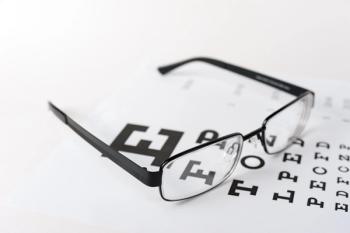
BLA Resubmitted for Investigational Ophthalmic Therapy from Outlook Therapeutics Inc.
ONS-5010 is an investigational ophthalmic formulation of bevacizumab under development to be administered as an intravitreal injection for the treatment of wet AMD and other retinal diseases.
Outlook Therapeutics Inc. today announced it has re-submitted its Biologics License Application (BLA) to the FDA for ONS-5010, an investigational ophthalmic therapy which, if approved, will be branded as Lytenava (bevacizumab-vikg) for the treatment of wet age-related macular degeneration (wet AMD).
Russell Trenary, President and CEO of Outlook Therapeutics, noted in a press release that the company has worked over the past three months to provide the additional required information that was not included in the company’s March 2022 BLA submission, to address requests from the Agency to ensure the BLA is complete for acceptance and review.
“We believe that this re-submission addresses each of the comments and recommendations from the Agency, and we are confident in the revised BLA application,” he said in the statement. “We remain committed to bringing ophthalmic bevacizumab to market, which if approved, can provide retina patients with an on-label treatment option that helps patients avoid the health risks associated with unapproved repackaged oncologic IV bevacizumab.”
According to the company, ONS-5010 is an investigational ophthalmic formulation of bevacizumab under development to be administered as an intravitreal injection for the treatment of wet AMD and other retinal diseases. Because no currently approved ophthalmic formulations of bevacizumab are available, clinicians wishing to treat retinal patients with bevacizumab have had to use unapproved repackaged IV bevacizumab provided by compounding pharmacies, products that have known risks of contamination and inconsistent potency and availability.
If approved, ONS-5010 can replace the need to use unapproved repackaged oncologic IV bevacizumab from compounding pharmacies for the treatment of wet AMD.
The company also noted in the news release that bevacizumab-vikg is a recombinant humanized monoclonal antibody (mAb) that selectively binds with high affinity to all isoforms of human vascular endothelial growth factor (VEGF) and neutralizes VEGF’s biologic activity through a steric blocking of the binding of VEGF to its receptors Flt-1 (VEGFR-1) and KDR (VEGFR-2) on the surface of endothelial cells. Following intravitreal injection, the binding of bevacizumab-vikg to VEGF prevents the interaction of VEGF with its receptors on the surface of endothelial cells, reducing endothelial cell proliferation, vascular leakage, and new blood vessel formation in the retina.
Terry Dagnon, chief operations officer of Outlook Therapeutics, noted in the release that the company’s NORSE TWO pivotal trial for ONS-5010 showed efficacy and clinical relevance coupled with a robust safety profile, and company officials are confident that the investigational drug, if approved, will be a valuable therapeutic option to treat retina diseases.
“ONS-5010 is designed and manufactured to be fully compliant with FDA’s criteria for ophthalmic biologics to meet the public health need for an FDA-approved ophthalmic formulation of bevacizumab,” Dagnon said in a statement.
In anticipation of potential FDA marketing approval in 2023, Outlook Therapeutics has continued its commercial launch planning. These activities include establishing best-in-class partnerships with FUJIFILM Diosynth Biotechnologies for drug substance, and with drug product manufacturer Ajinomoto Bio-pharma Services for finished drug product. Outlook Therapeutics is also actively building out its distribution and commercial capabilities.
According to the company, the BLA re-submission is based on the totality of data from Outlook Therapeutics’ wet AMD clinical program for ONS-5010, which consists of three completed registration clinical trials - NORSE ONE, NORSE TWO and NORSE THREE – as well as a Phase 1 pharmacokinetic clinical trial and the necessary pre-clinical testing.
NORSE ONE was a clinical experience trial involving 61 wet AMD participants at nine trial sites in Australia. It compared ONS-5010 to ranibizumab (LUCENTIS®) as a treatment for wet AMD. NORSE ONE showed the first markers of efficacy and safety in humans for ONS-5010 ophthalmic bevacizumab. In the trial, ONS-5010 efficacy and safety data were consistent with historical published studies of bevacizumab in ophthalmology. NORSE ONE also supported the trial design and inclusion/exclusion criteria established for NORSE TWO, the pivotal Phase 3 registration clinical trial.
The NORSE TWO Phase 3 pivotal trial enrolled a total of 228 wet AMD patients at 39 clinical trial sites in the United States. It was designed as a superiority study comparing the safety and efficacy of ONS-5010 ophthalmic bevacizumab dosed monthly against ranibizumab (LUCENTIS®) dosed according to the PIER dosing regimen described in the LUCENTIS® label. The trial data met both their primary and secondary endpoints with high statistical significance and clinical relevance. For its primary endpoint, 41.7% (p = 0.0052) of patients gained at least 15 letters of vision, and for its secondary endpoints 56.5% (p = 0.0016) of subjects gained ≥ 10 letters of vision and 68.5% (p = 0.0116) gained at least 5 letters. The key secondary endpoint was met: mean change in BCVA from baseline to Month 11, which was 11.2 letters gained compared to 5.8 letters gained in the ranibizumab arm (p = 0.0043). The NORSE TWO data also showed that the drug was well-tolerated, consistent with previously reported data for ONS-5010 and prior research.
NORSE THREE was an open-label safety study of ONS-5010 in 197 patients conducted in the United States to provide the necessary number of retina patients dosed with ONS-5010 to complete the requirements for the BLA submission.
Safety results across the first three NORSE trials demonstrated a strong benefit-to-risk safety profile. Across all three ONS-5010 registration trials, there was only one ocular inflammation adverse event, which was reported in NORSE TWO; the event was treated topically and resolved without sequelae. The most common adverse reaction (≥ 5%) reported in patients receiving ONS-5010 was conjunctival hemorrhage associated with the needle injection procedure (5%). These safety findings continue to support minimal ocular inflammation and safety signals consistent with what was previously reported in the 2011 CATT trial (National Eye Institute) and other large adequate and well-controlled ophthalmic studies of bevacizumab.
As the company previously announced, if ONS-5010 receives FDA approval, Outlook Therapeutics plans to submit a supplementary application (sBLA) for approval to provide the product in a pre-filled syringe that is free from liquid silicone oils and that meets the FDA’s specifications for ophthalmic use.
To support the anticipated submission of this sBLA, the company noted that it is conducting its NORSE SEVEN clinical trial to compare the safety of ONS-5010 in vials versus ONS-5010 in pre-filled syringes. NORSE SEVEN is expected to enroll approximately 120 subjects with visual impairment due to retinal disorders. Patients will be treated for three months, and patient enrollment in the arm of the study receiving ONS-5010 in vials has already been completed.
Newsletter
Pharmacy practice is always changing. Stay ahead of the curve with the Drug Topics newsletter and get the latest drug information, industry trends, and patient care tips.























